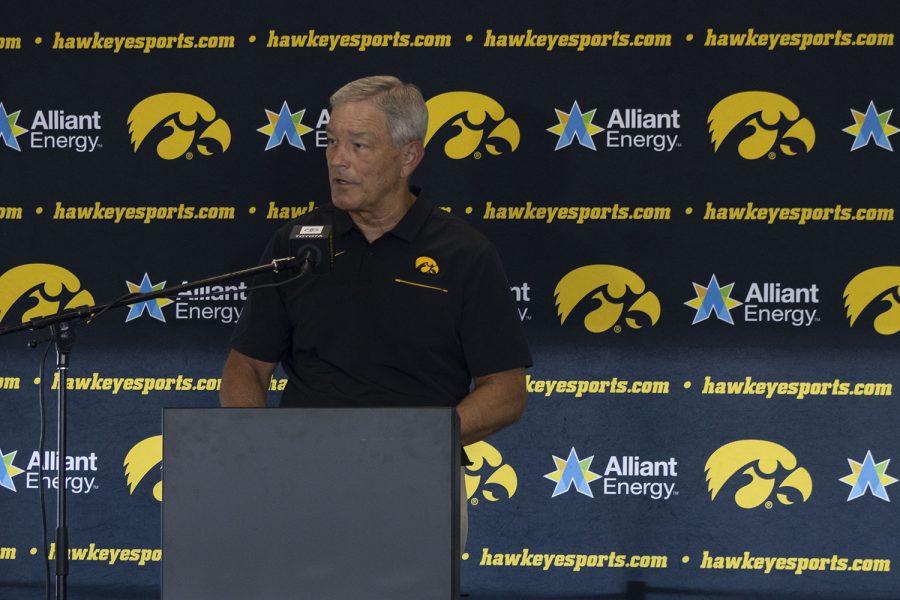Kirk Ferentz responds to demand letter from former players
Eight former Hawkeyes are demanding monetary compensation and for Kirk Ferentz, Brian Ferentz, and Gary Barta to be removed because of the intentional racial discrimination they claim to have experienced in the football program.
Iowa head coach Kirk Ferentz speaks at a press conference on Thursday, July 16, 2020 at the Pacha Family Club Room in Kinnick Stadium. Ferentz discussed the upcoming football season and the continuing actions that the team is working on toward strengthening inclusivity in the program. (Hannah Kinson/ The Daily Iowan)
October 18, 2020
Iowa head football coach Kirk Ferentz released a statement on Sunday in response to the demand letter sent to the University of Iowa on Oct. 5, which called for, among other things, his dismissal, and the dismissals of offensive coordinator Brian Ferentz and Athletics Department Gary Barta.
“I am disappointed to receive this type of demand letter,” Ferentz said in a release. “Due to the threat of litigation, I am not able to address the specific comments made by our former players. As you may know, this past summer we made adjustments to create a more inclusive and welcoming environment for all of our student-athletes. These changes include both policies and rules, as well as an expanded leadership council of current players and a new advisory committee comprised of former players.
“I am deeply committed to helping everyone who joins the Hawkeye Football program reach their full potential on and off the field. My focus is now on our current players who are preparing for our first game this Saturday.”
Eight Black former Hawkeye football players — Akrum Wadley, Aaron Mends, Jonathan Parker, Marcel Joly, Maurice Fleming, Reggie Spearman, Kevonte Martin-Manley, and Andre Harris — claim they were subjected to intentional race discrimination by the coaching staff and administration in their time with the program.
The group is also seeking a payment of $10 million and an additional $10 million fund to compensate other athletes for the “discrimination and ongoing severe and pervasive acts that constitute intentional discrimination.”
The UI responded to the demand letter on Sunday. In a written response sent to the group’s attorney, the university’s Vice President for Legal Affairs and General Counsel, Carroll J. Reasoner, declined the group’s monetary and personnel demands.






